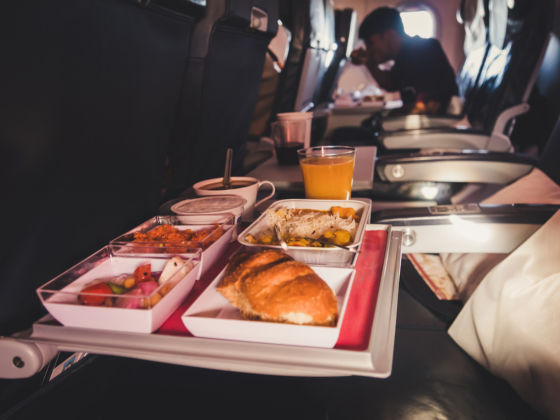Eating right while traveling can be tough. Your schedule is thrown out of whack, and there’s a good chance that the food options at most airports or hotels are more in line with Guy Fieri than Antoni Porowski. Sometimes, it can feel like the only option is to abandon your healthy eating goals or go hungry. But you don’t have to let a flight, long hotel stay, or road trip push you into a spiral of fast food and snacks.
We reached out to nutritionists to gather the best tips for healthy eating while traveling. Stay fit out there.
